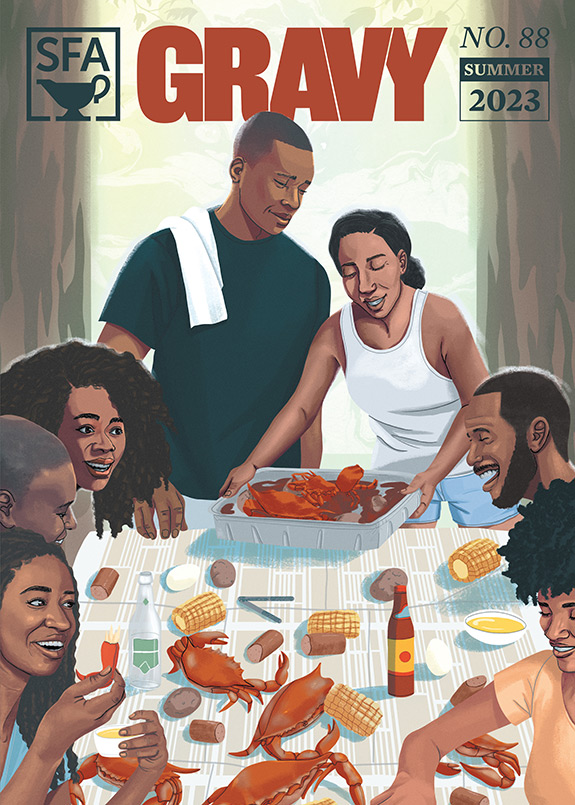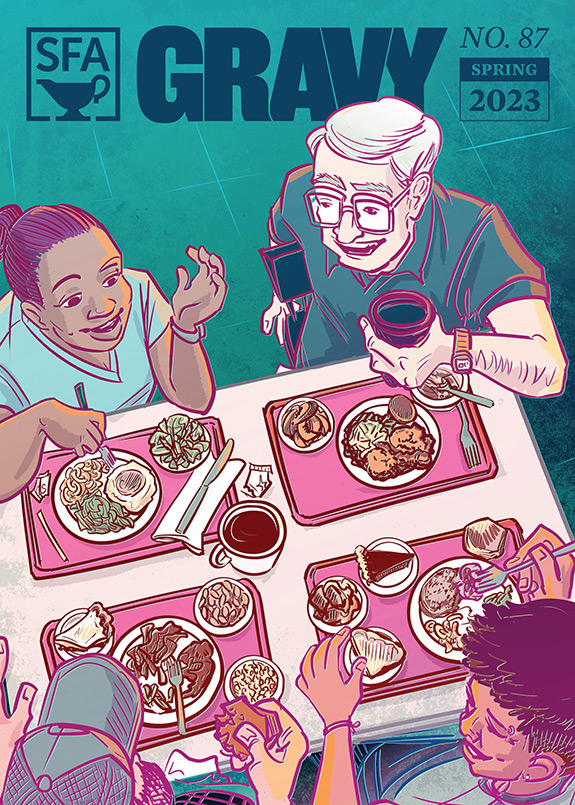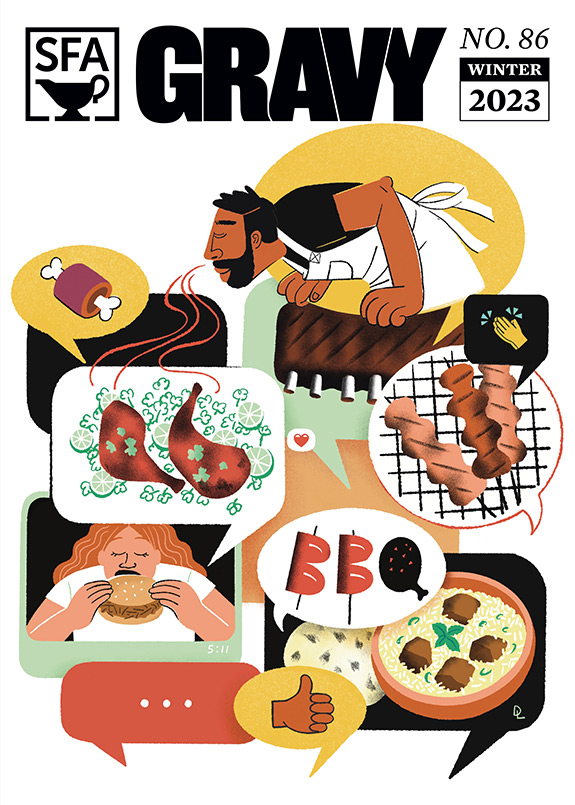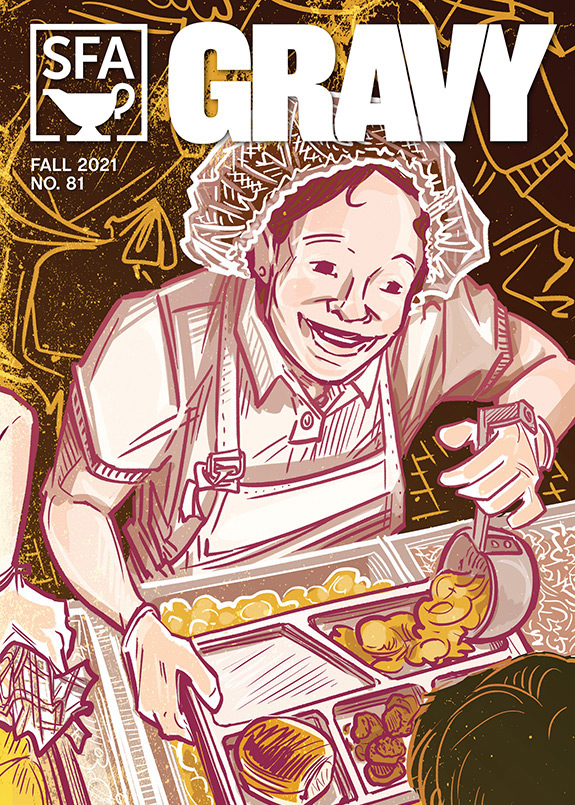Tuesday morning, Bitter Southerner published Kathleen Purvis’s piece “The Testosterone Takeover of Southern Food Writing.” In the article, Ms. Purvis, a veteran food writer and editor with a long tenure at the Charlotte Observer, asserts that the Southern Foodways Alliance perpetuates the shift from female to male that has characterized Southern food writing in the twenty-first century.
SFA has indeed confronted gender imbalance in our editions of Cornbread Nation and in the programming at our events, as Purvis points out. For an organization dedicated to righting past wrongs, that work is deeply important. We’ve also worked to include other voices that are traditionally left out of the conversation due to race, class, ethnicity, region, and religion.
Purvis also rightly asserts that those in positions of power determine which content gets assigned and published. She asks, “How can you tell the complete story, the full story, of the South without all of us at the table?”
Yet when she describes SFA, she dismisses the role of everyone who contributes to the organization save founding director John T Edge.
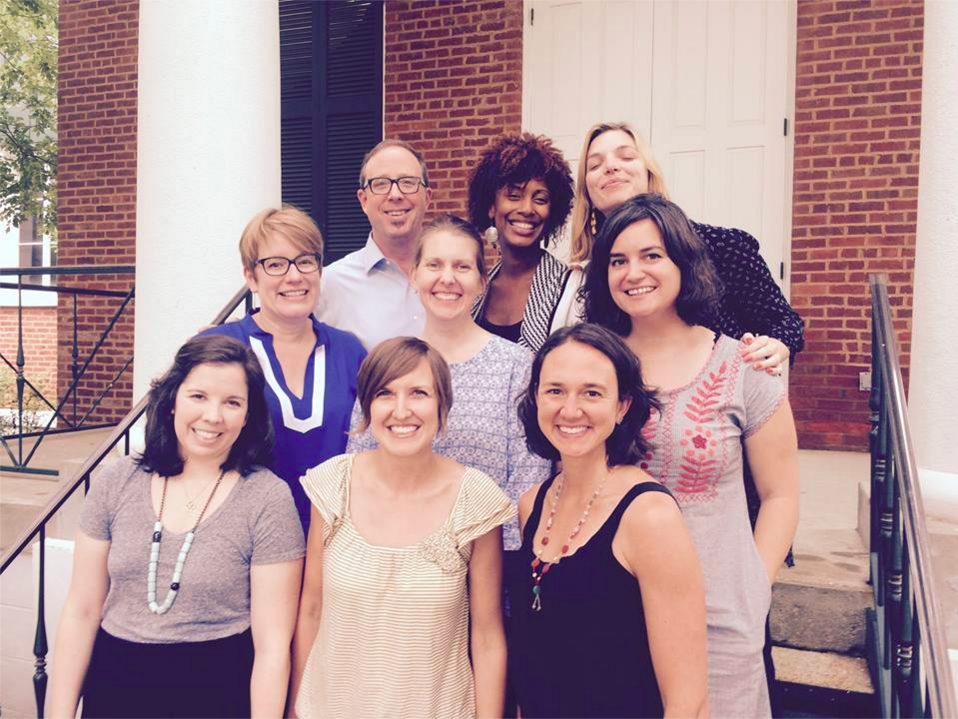
Women commission and edit the overwhelming majority of the content we produce, women lead the study of Southern foodways in our classrooms, women oversee the day-to-day operations of SFA, and women primarily execute our events.
This misrepresentation of SFA’s editorial staff reflects a deeper problem with Purvis’s article. Purvis limits her scope to Southern food writing—though our annual symposium does make it into the article—then she zeroes in on print writing in particular. Yet while discussing SFA’s editorial bent, she omits our primary outlet for print writing: Gravy magazine.
Still more troubling, in focusing so narrowly on the print culture surrounding Southern food, Purvis ignores the much broader Southern food conversation. That conversation is taking place in academic institutions, on the radio, in films, on blogs, on social media, in restaurant kitchens, and at live events. Is gender parity an issue in those arenas? Yes. But these nontraditional spaces for conversation are just as ripe for the subversion of gender inequality as long-established print outlets.
The work we do, the questions we ask, and the ideals we pursue are evident in SFA oral histories, films, podcasts, web content, journals, events, and awards. The writers, photographers, producers, artists, chefs, and other contributors are representative of the nuanced and complex stories of this region.
Purvis says she chose to critique the Southern Foodways Alliance because, “if you’re going to start a dog fight, [you] sink your teeth into the ear of the biggest dog in the pack.” While it’s flattering to be called the big dog, we don’t find the analogy fitting.
We’re in this fight, to be sure, but we’re fighting on the same side. On the printed page and elsewhere.





